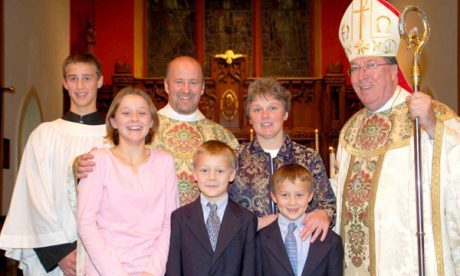While Pope Francis’ recent comments on the subject of married priests made headlines around the world, his response falls clearly in line with the thinking of his predecessors.
In an interview with German newspaper Die Zeit, published in early March, Pope Francis was asked if allowing candidates for the priesthood to fall in love and marry could be “an incentive” for combatting the shortage of priestly vocations.
He was also asked about the possibility of allowing married “viri probati” — men of proven virtue — to become priests.
“We have to study whether ‘viri probati’ are a possibility. We then also need to determine which tasks they could take on, such as in remote communities, for example,” Pope Francis said.
Expressing a willingness to study the question of allowing married men to become priests was hardly a groundbreaking response given that the topic was explored in two meetings of the Synod of Bishops and by both Pope Benedict XVI and St. John Paul II.
During the 2005 Synod of Bishops on the Eucharist, the possibility of ordaining men of proven virtue was raised as a way to provide priests for areas of the world where Catholics have very limited access to Mass and the sacraments.
“Some participants made reference to ‘viri probati,’ but in the end the small discussion groups evaluated this hypothesis as a road not to follow,” a proposition from the synod said.
Eight years before he was elected pope, then-Cardinal Joseph Ratzinger said that while married priests in the Catholic Church were not on the horizon in “the foreseeable future,” it was not an entirely closed subject.
In “Salt of the Earth,” an interview-book with Peter Seewald published in 1997, the future Pope Benedict said, “One ought not to declare that any custom of the church’s life, no matter how deeply anchored and well founded, is wholly absolute. To be sure, the church will have to ask herself the question again and again; she has now done so in two synods.” Continue reading
Sources
- Catholic News Service article by Junno Arocho Esteves
- Image: Crux
